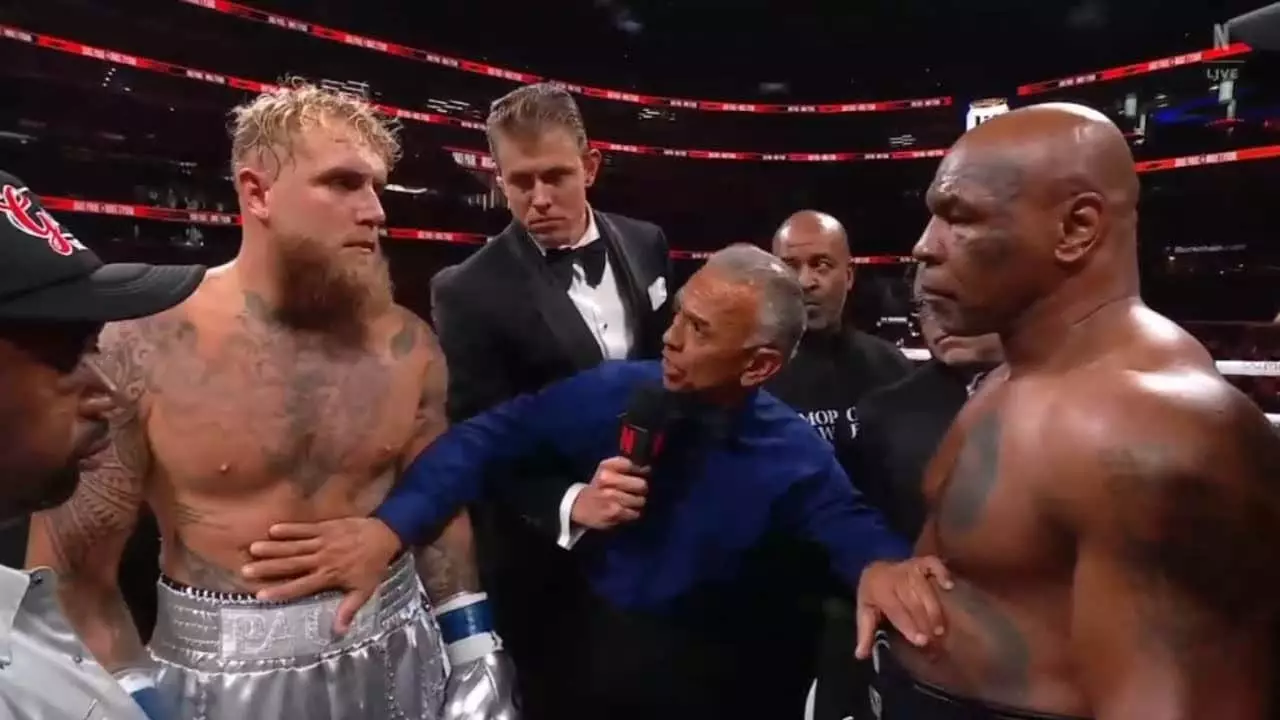In a highly anticipated match between the internet sensation Jake Paul and legendary former heavyweight champion Mike Tyson, the aftermath has left fans scratching their heads. Paul emerged victorious with an eight-round unanimous decision, but his post-fight comments about not going for the knockout have ignited a whirlwind of criticism and skepticism regarding the integrity of the fight. This encounter, held at the AT&T Stadium in Arlington, Texas, featured Paul controlling much of the action, and yet, many are left wondering whether it was a genuine competition or a scripted spectacle.
Jake Paul, with a record now standing at 11-1 and 7 KOs, has attracted both a fervent following and vehement detractors. His statement at the press conference, claiming that he eased off during the bout to avoid injuring the 58-year-old Tyson, has been met with both disbelief and disappointment. Many fans who invested their time and money—particularly those who subscribed to Netflix to watch the fight—expected an electrifying confrontation. Instead, they saw a performance that, for many, felt lacking in urgency and genuine competitiveness.
Monitor the social media buzz from the event, and you will find a significant chorus of viewers voicing their discontent, some even going so far as to label the clash as “fake.” Perhaps this perception stems from Paul’s apparent reluctance to fully unleash his power, particularly after he clearly hurt Tyson with a well-placed left hook during the third round. The implications of this restraint raise questions about whether sporting ethics were compromised in favor of entertainment.
Statistical analysis from the bout underscores the disparity in performance between the fighters. Tyson managed to land a mere 18 punches out of 97 thrown—an alarming ratio that highlights his struggle in keeping pace with a younger opponent. In stark contrast, Jake Paul struck 78 out of 278 attempts, showcasing not only superior volume but also accuracy. These statistics paint a bleak picture for Tyson, whose age may have greatly hindered his capability to engage effectively.
Notably, Paul’s decision not to capitalize on a knockout opportunity not only raises eyebrows but also leaves many questioning his motivations. Was this bout a chance to showcase skill, or merely a spectacle designed to entertain rather than compete?
Ultimately, the question remains: What did fans truly pay for? While Jake Paul may feel proud of his restrained performance, the dissatisfaction resonating through the boxing community hints at an audience craving authenticity over theatrics. Both fighters now face a pivotal junction—Paul must prove that he can engage in genuine competition, while Tyson may need to seriously reconsider his career choices, if not for himself, then for the integrity of the sport.
As the dust settles on this controversial fight, fans and analysts alike will be watching closely to see how both Paul and Tyson navigate their respective paths forward in the boxing world.

